Top 28 Best Business Bank Accounts in the UK part 1 – that will be the topic of today’s article.
For any questions, or if you are looking to invest, you can contact me using this form, or via advice@adamfayed.com
Introduction
Many of us are now self-employed, freelancing, contracting, whether it’s our full-time job or part-time job. While most can use their regular bank account, there are times when you need to use a business account, or it’s much easier to separate your finances.
What is a business bank account?
There is nothing special about a business bank account. At a basic level, this is similar to your personal bank account, but you open it solely for your business’s income and expenses.
But a business account can range from a very simple account for depositing and withdrawing money to an account that helps you bill, run payroll (if you employ others), and help with your accounting and tax returns. Whatever you need, there is always an account to help.
Many are looking for free business banking when it doesn’t really exist – at least not in the same way as for personal bank accounts. However, later in this guide, we will look at the most popular accounts, including which bank accounts are the cheapest.

Who needs to open a business bank account?
There is a pretty simple line here, and it has to do with whether your business is legally separate from you.
You can open a bank account if you have set up your business as a UK limited company. In this case, your business is legally separate from you, so you do not have to use a personal account for your expenses.
You do not need to open a bank account if you a sole trader or freelancer or contract worker (but not through a limited liability company), such as a hairdresser, researcher, journalist, TV producer, gardener, designer, developer.
In these cases, you are not required to open a business account because your business or self-employment is not legally separate from you. As a freelancer, sole proprietor, or employee, you and your businesses are one and the same in the eyes of the law – and the taxman!
However, even if you’re in the “I don’t need it” camp, you can still open one as it’s sometimes easier to have one than trying to juggle your business’s income and expenses with your own, especially if your self-employment income is the lion’s share of yours. total income.
As a general rule, if you offset business expenses (such as travel tickets, phone calls, or stationery) from your income, you really should look for a separate business account.
To open a commercial bank account, you will need incorporation documents, an employer identification number, and identification documents. You can open a checking and savings account for your business. A business bank account is essential to keep your business and personal finances separate.
Business bank accounts help you professionally manage your business finances and separate those funds from your personal finances. Opening a commercial bank account requires more effort than opening a personal account.
Because banking can be expensive and difficult for a small business, finding the right account for you is probably at the bottom of your priority list.
Finding a free business bank account is a great way to keep costs down, and if you don’t mind switching accounts, you can continue to get free banking by switching accounts every 18 to 24 months.
In this guide, you will find detailed information on the best free business bank account offers from leading banks to lesser-known providers.
1. Tide

Tide positions itself as a non-bank and offers a modern approach to business banking with a user-friendly business banking app and quick setup.
Tide bank accounts have a very simple pricing with no account maintenance fees and no card usage fees. They charge fees for transfers to or from accounts other than Tide, cash withdrawals, and cash deposits.
Tide offers a range of value-added services, including instant credit for businesses up to £15,000. Their business banking app allows businesses to take control of their bank account wherever they are, including managing their bank cards, billing, and general banking.
2. Metro Bank
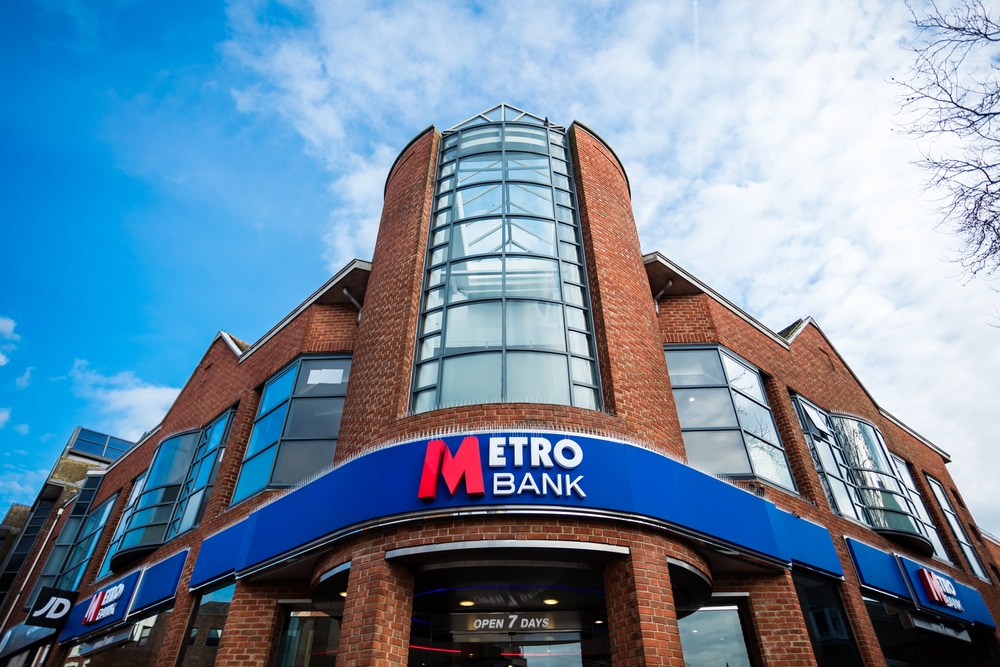
Metro Bank may not be one of the best-known banks in the UK or the most reputable, but they offer a different style of service geared towards today’s business. They offer bank accounts for businesses that have no monthly fees and 50 free transactions per month as long as you keep a minimum balance of £5,000.
To be eligible to open an account with Metro Bank, you must be over 18 years of age and have an annual turnover or balance of up to £2 million. At least 50% of the shares in your business must be owned by UK residents and at least 50% of the directors or beneficial owners must also be residents in the UK.
3. TSB
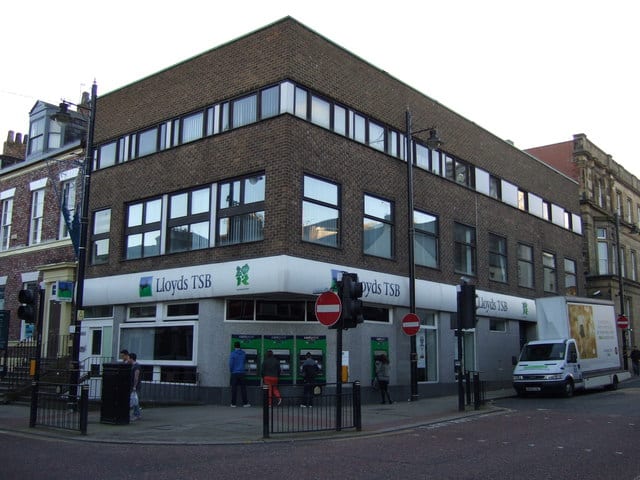
TSB is part of a larger banking group called Lloyds Banking Group. At the end of the free banking period, you can choose which bank rate you want to upgrade to. The Fixed Fee Account has tiered fixed premium tiers for transactions that have a different fixed monthly fee. The “Business Extra” tariff has no subscription fee, you pay for each transaction. The E-Business rate is for businesses that primarily conduct electronic or automated banking transactions, which are charged per transaction rather than a fixed monthly fee.
4. Santander
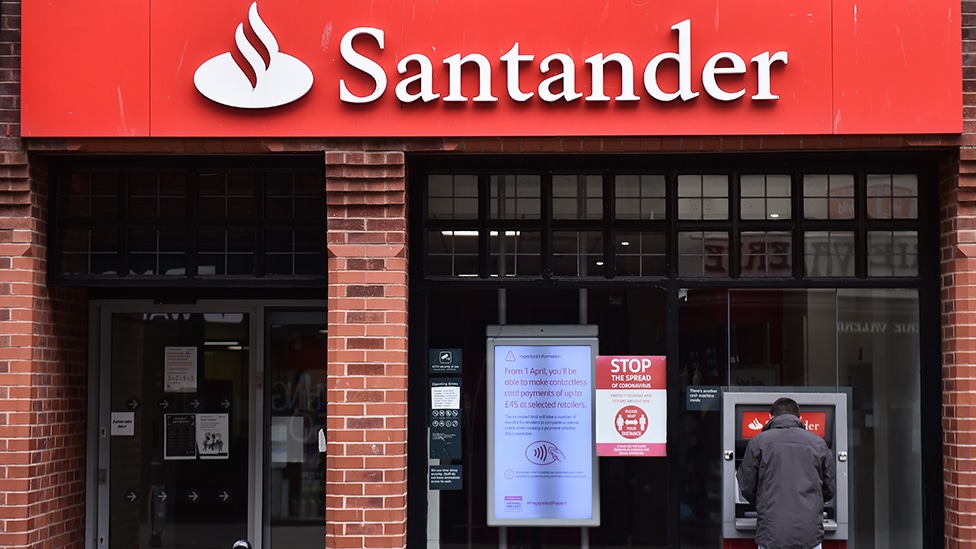
Santander is a major UK retail and commercial bank which is a subsidiary of Banco Santander, a major global bank.
Santander Business Accounts have a simple structure, you pay a monthly account fee of £7.50 to £40 and each has a monthly cash deposit limit of £1,000 to £10,000. All other transactions such as checks, withdrawals, payments, BAC are free although some restrictions may apply. Extra fees apply for non-standard transactions such as change, CHAPS payments, and foreign currency transactions.
5. Royal Bank of Scotland
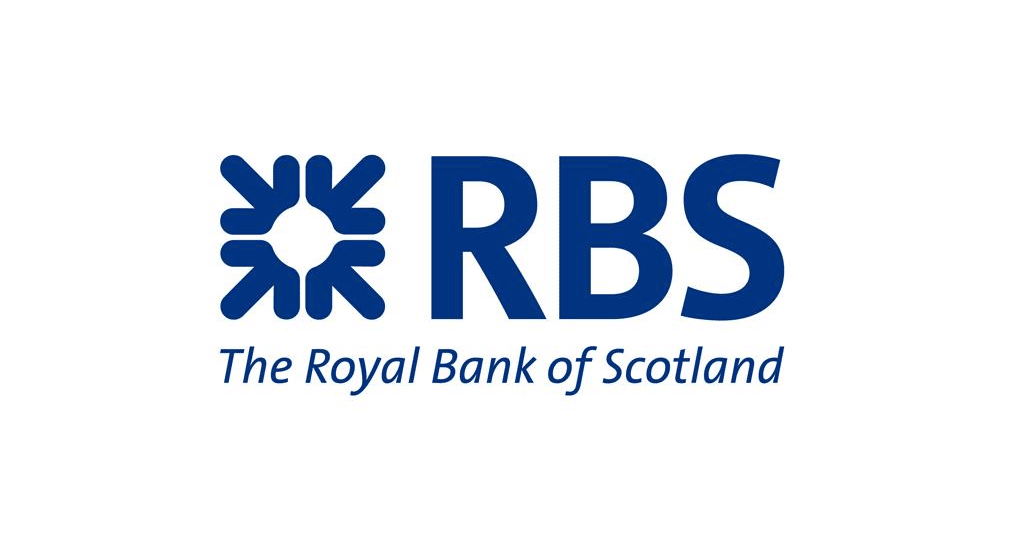
Royal Bank of Scotland is a British bank with a long history, founded in Edinburgh in 1727 and is one of the largest banks in Scotland. It is one of many banking and investment businesses owned by RBS, including NatWest and Ulster Bank.
Royal Bank of Scotland offers bank accounts for new and established businesses with turnover up to £2 million. They have a separate offer for new businesses and public or non-profit accounts.
Royal Bank of Scotland supports its business clients by helping them grow and develop their businesses. Their Boost program aims to help businesses by providing a range of activities and support tools.
6. Ulster Bank

Ulster Bank is part of the RBS group of companies, which includes Royal Bank of Scotland and NatWest, as well as other financial services companies.
To be eligible to open a bank account with Ulster Bank, you must have a business address in Northern Ireland and have a maximum turnover of £2 million for a small business bank account.
Ulster Bank offers a low account maintenance fee but charges a minimum of 40p per transaction for all transactions. They offer a wide range of other banking and financial services, including lines of credit, deposit accounts, commercial mortgages, and cards.
7. Cooperative Bank
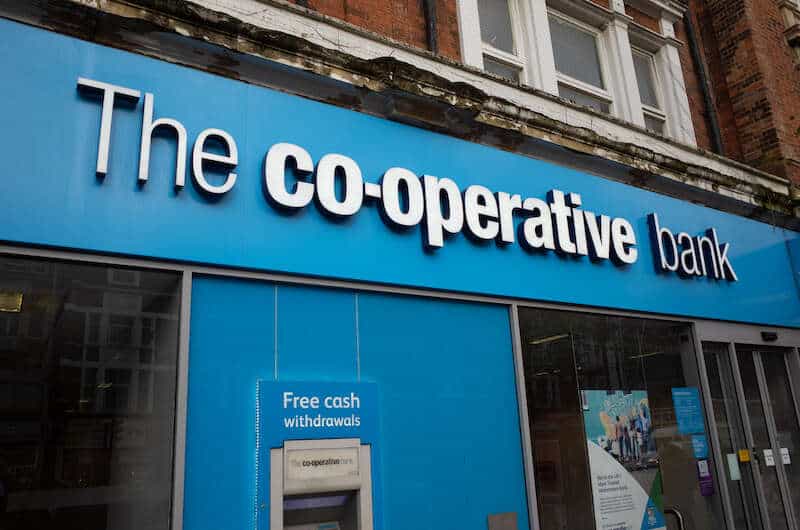
The co-operative bank is an ethical bank whose policies are customer-centric, which affects how they conduct their business and who their customers may be.
To be eligible to open a Cooperative Bank corporate bank account, all key parties must be over 18 years of age, UK residents with a UK address. All key parties must be free of CCJs, bankruptcy, IVAs, and missed out-of-pocket payments for the last 6 years.
They offer a range of business bank accounts that are designed for small businesses and charities. Accounts include the Federation of Small Business Exclusive Membership Account, Standard Business Accounts, Cash Rate Accounts, New Customer Offerings, and Community Accounts.
8. Clydesdale Bank
Clydesdale Bank offers one of the longest free daily banking periods on the market, with 25 months available to new clients and start-ups. At the end of the free banking period, they transfer businesses to their business banking rate.
Clydesdale Bank has developed its checking accounts for businesses that need basic management of their daily banking activities. Their checking account offers an additional agreed overdraft facility.
9. Bank of Ireland
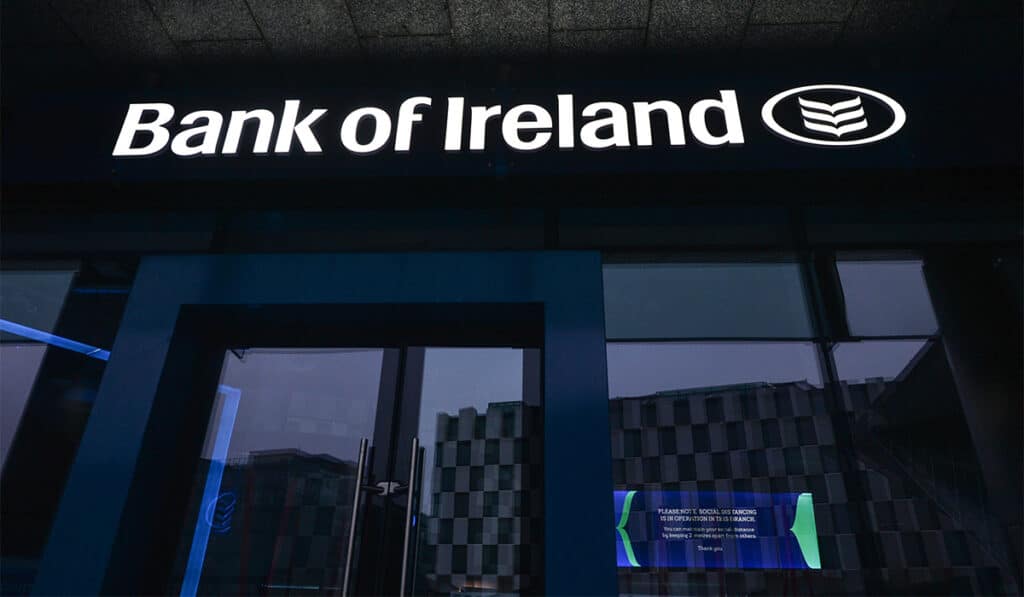
The Bank of Ireland has developed its Business Checking Account to help businesses manage their day-to-day banking activities in an easy and manageable way. Their checking account has a simple pricing structure that encourages the use of online banking and smart payment methods to reduce overheads and fees.
They aim to make it easy to switch to or create your first business bank account, either through a switching service or a direct app that allows businesses to apply for a checking account, savings account, and credit card in one app.
10. Allied Irish Bank
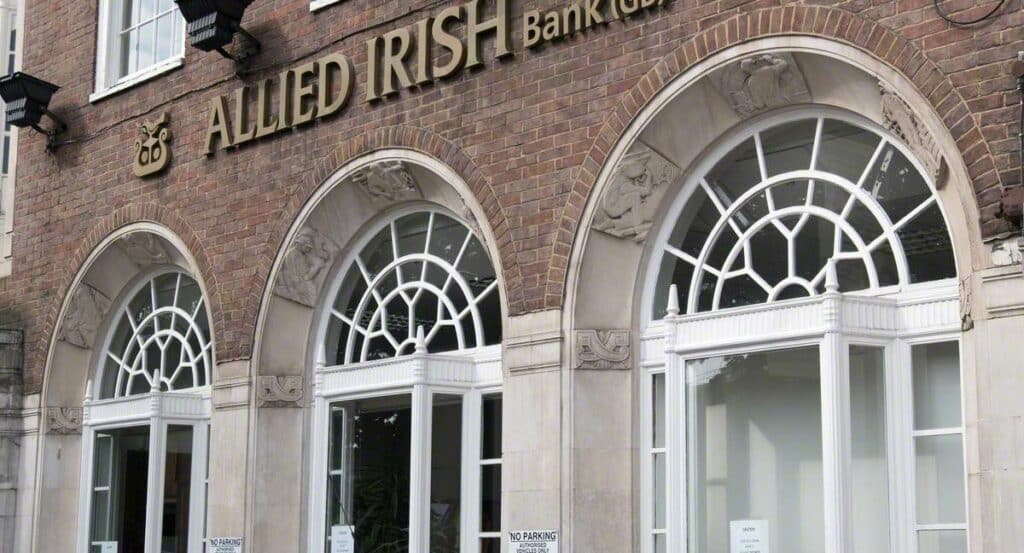
Allied Irish Bank is focused mainly on business banking. Their current business account offers a range of features that you would expect from a corporate bank account.
If you are looking for branch banking, you should make sure there is a business center near you as they are located mainly in major cities in the UK. However, they do have a number of online services and also allow payments at some post offices.
Their industry is focused on hotels, franchises, healthcare, manufacturing, and professional practice.
11. Handelsbanken

Handelsbanken is a Swedish bank that has been operating in the UK since 1982 and currently has over 200 branches across the country.
They offer businesses a range of standard business accounts and banking services, including online banking and mobile banking. In addition, they also offer currency exchange features as well as a range of personalized loans and loan products.
12. Card One Banking
Card One Banking, founded in 2007, is one of the oldest alternative business accounts.
However, it can be a good choice for businesses and founders with bad/no credit history as they don’t do credit checks. Just be aware that the account can only be used by businesses with a maximum annual turnover of £2 million. So if you have plans to go beyond that, you might want to check out other banks as well.
13. Fair Everywhere
Fair Everywhere is a subsidiary of FairFX founded in 2007. The main goal of the account is to make international business faster, cheaper, easier, and more honest.
Unlike other banks, they have a very transparent fee of £50 per month, but it includes just about everything. You can also deposit cash at the post office or at any Barclays branch on Main Street. However, be aware that accounts are currently limited to sending and receiving up to £100,000 per month.
14. Coconut
Coconut is designed for freelancers, self-employed and small businesses. That’s why they offer low prices (free or £5 a month) and many features that make running any small business easier, such as bookkeeping, bookkeeping, and taxes.
15. Cashplus
Cashplus won Paybefore’s ‘Best Challenger Bank 2017’ award, which they say is due to their faster payments, debit cards, integration with accounting software, and no monthly service fees.
Pained by financial indecision? Want to invest with Adam?
Adam is an internationally recognised author on financial matters, with over 373.5 million answers views on Quora.com and a widely sold book on Amazon


